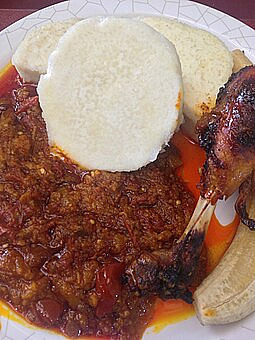You can diversify your leisure travel by taking a food tour in the capital of Ghana. In this kind of tour, you will experience at first hand, the local cuisine and other aspects of culinary activities.
What it is all about
The study of food as a means of travel is known as culinary or food tourism. It is seen as an essential part of the travel experience. Tourism often involves dining out, with travelers ranking “food is believed to rank alongside climate, accommodation, and scenery” in importance. The idea of leisure travel has changed recently to include more than just sightseeing. Nowadays, tourists are looking for more immersive experiences that appeal to all of their senses. Culinary tourism—seeing food as a genuine representation of a place’s culture—is one trend that has garnered a lot of support. People can now travel and eat their way across the world, gaining a better appreciation of different cultures, customs, and geographical features.
Agritourism is regarded as a subset of rural tourism, whereas culinary tourism is regarded as a subset of cultural tourism. Notwithstanding this differentiation, a strong bond exists between agritourism and culinary tourism, as agriculture serves as the wellspring of culinary creativity. Gourmet food is just one aspect of culinary and food tourism; there are other aspects as well.
The joy and benefits
Travelers can learn a great deal about the traditions, beliefs, and way of life of the capital of Ghana by savoring the local cuisine, since food is a universal language that cuts across boundaries. Eating street cuisine in Cantonments, kelewele at Osu, or tea with the people in Labone—culinary tourism cultivates a profound understanding of many cultures.
Cooking lessons are a developing component of culinary tourism. The lengths of the lessons range from a few hours to several days, as well as complete days. While local tourists might be eager to explore different cuisines, foreign tourists typically have their sights set on the cuisine of the suburb in Accra they are visiting. To enrich the cultural experience, market trips to Malam, Abeka Lapaz or Mamprobi are common additions to cooking instruction. A few cooking workshops are conducted in the homes of locals, giving visitors from other countries an idea of what local cuisine and daily living are like. The cross-cultural encounter is advantageous to both the foreign visitors and the local hosts.
Various editions to pick from
Under the umbrella of culinary tourism, or food tourism, there are a lot of different kinds of activities. Let’s examine them more closely.
- Dining and drinking outdoors at top eateries like The Venue in Adjiriganor, Bistro 22 at Labone estates or Sunshine Salad Bar & Restaurant at Osu.: visiting, bars, tea shops, and so forth. Each of these represents a type of culinary tourism. When visiting Accra city, you can reserve a spot on an organized food and drink tour. These trips are led by tour operators who will take you to different locations around the city so you can sample the local specialties.
- Purchasing fresh vegetables at a farmers market such as ones at Agbobloshie, Achimota or Lapaz on the weekends is considered a type of culinary tourism.
- Taking a cooking or baking class is another activity you may do while traveling in the capital of Ghana. Again, you’ll frequently prepare a specialty from the area, such as kenkey from Jamestown or omo tuo from Zongo. Tasting sessions are another type of culinary tourism. These features include excursions to vineyards and breweries where you can see how something is prepared and then experience it for yourself.
In summary, culinary tourism is more than just overindulging in delicious food—rather, it’s about going on a sensory journey that uplifts the spirit and enhances life. So why not take a bite out of the world, whether you’re a seasoned diner or an adventurous traveler?
Notable food in Accra
- Waakye
- Red red
- Kokonte
- Gari
- Fufu
- Angwa mo
- Ampesie
